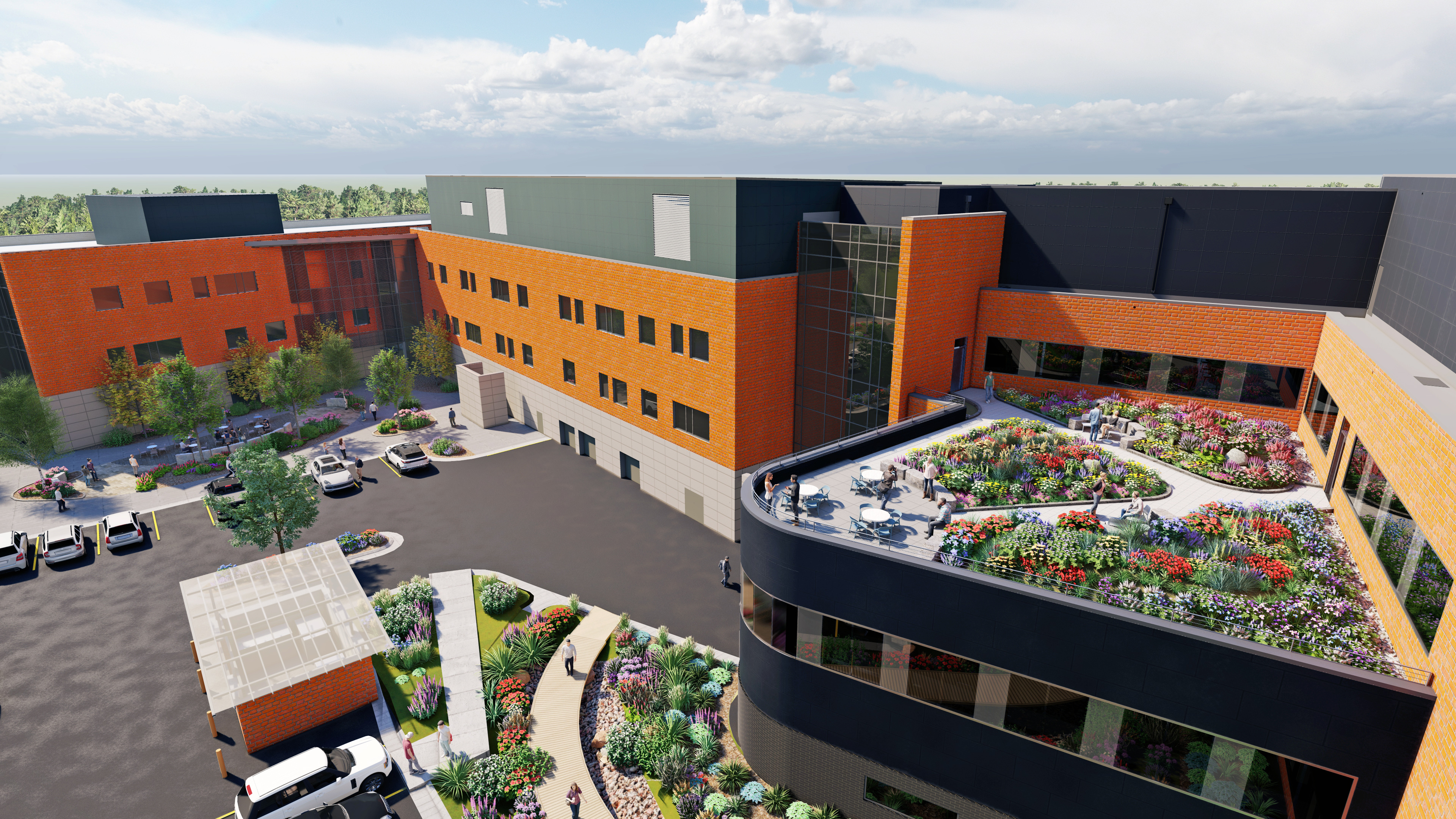
The University of Wisconsin-Platteville is continuing its commitment to sustainability with the construction of its newest engineering building, Sesquicentennial Hall. Set to open this fall, it will be the university’s first building to seek certification by the U.S. Green Building Council’s internationally-recognized Leadership in Energy and Environmental Development rating system, known as LEED. To achieve LEED certification, a building project earns points based on meeting prerequisites in the areas of carbon, energy, water, waste, transportation, materials, health and indoor environmental quality.
According to Dr. Philip Parker, acting dean of the College of Engineering, Mathematics and Science, a number of Sesquicentennial Hall’s sustainability features will double as teaching tools, such as a visible storm water system wrapping around the building and a solar array on the rooftop. One of the most recognizable sustainability features will be the accessible green roof.
“In addition to being a beautiful spot for students to hang out, the green roof is also a very useful part of the building,” said Parker, adding that it functions as a storm water detention method, helping prevent excess run-off.
The building’s covered bike parking and electric vehicle charging stations will help promote alternative transportation methods.
“Students have to understand how everything they design impacts people and impacts the environment at some level. To have a building where they will be surrounded by that all the time will help educate future engineers on the importance of their decisions.”
– Dr. Philip Parker
While many of the prerequisites for LEED certification aren’t outwardly visible – from water and energy use to the selection of building materials and more – an augmented reality tour of Sesquicentennial Hall will allow students and visitors to learn more about these features. With an app, visitors can use their phone to move around the building and see a digital overlay with more information about particular features.
“It’s hard to think of something in a modern building that doesn’t somehow affect the environment – from what kind of carpet you choose to how you lay out the building to how you heat and cool it,” said Parker. “There are intentional amenities in the building that are very obviously about sustainability, but through the augmented reality app, we’ll be able to see everything that has an impact on sustainability.”
Parker said that being able to see the impacts of every decision is important especially for the future engineers who will be educated in the building.
“It’s important for the students to see that engineering is more than calculations and technical understanding,” said Parker. “Students have to understand how everything they design impacts people and impacts the environment at some level. To have a building where they will be surrounded by that all the time will help educate future engineers on the importance of their decisions.”
Parker said that more important than achieving LEED certification – which is the most widely used green building certification – is the continued commitment to the university’s sustainability goals.
“The important thing is that we’re doing this the right way,” said Parker. “We didn’t set out saying, ‘we want a LEED-certified building.’ We wanted a building that lives our sustainability mission. This wasn’t about getting a LEED-certification from the start; it was about having a building that demonstrates to students and ourselves that we are walking our sustainability talk.”
The $55 million Sesquicentennial Hall will adjoin Busby Hall of Engineering to create a 200,000-square-foot complex to support interdisciplinary engineering and computer science. It will include state-of-the-art teaching laboratories and the Huff Family Innovation Center – slated to be one of the largest makerspaces in the Midwest. For more information, visit www.uwplatt.edu/sesquicentennial-hall.